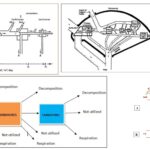Why is telomerase turned off in somatic cells?
Why is telomerase turned off in somatic cells?
Please login to submit an answer.
Telomerase is turned off in most somatic cells as a mechanism to limit cellular division and prevent the uncontrolled proliferation that can lead to cancer. If telomerase were active in somatic cells throughout their lifespan, it would continually add telomeric repeats to the chromosome ends, preventing the natural shortening of telomeres during cell division. This could lead to “immortal” cells that do not age and continue to divide indefinitely, which is a characteristic of cancerous cells. The inactivation of telomerase in somatic cells serves as a safeguard against such unchecked cell growth. In normal development and tissue maintenance, the limited number of cell divisions is crucial for preventing genomic instability. Additionally, telomerase reactivation in somatic cells is associated with cancer, as many cancer cells re-express telomerase to maintain telomere length and avoid the normal replicative senescence that would otherwise occur. Thus, turning off telomerase in somatic cells is a critical regulatory mechanism to maintain cellular and organismal health.
- Share on Facebook
- Share on Twitter
- Share on LinkedIn
Helpful: 0%




